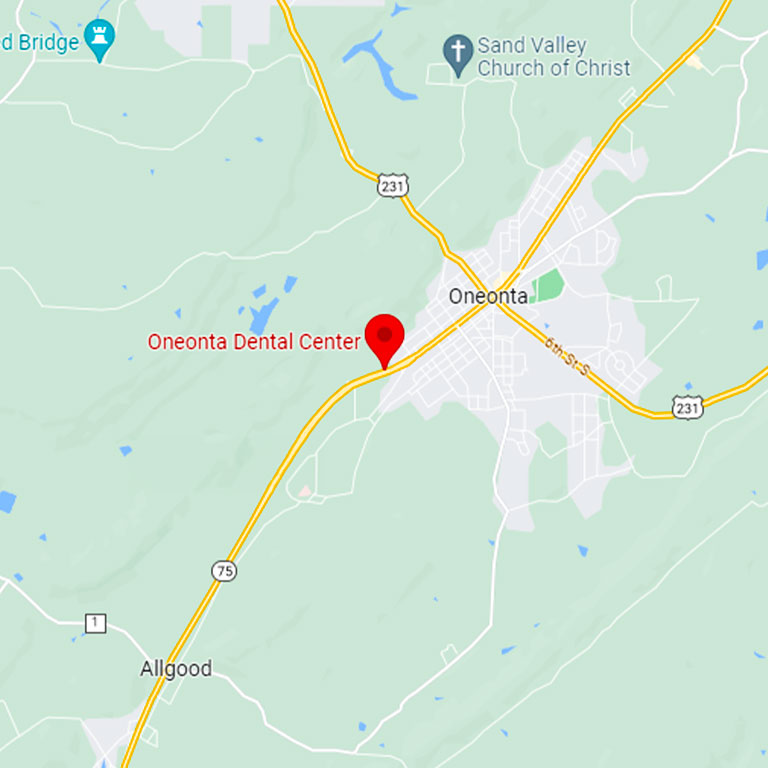TMJ

TMJ (Temporomandibular Joint) is a painful disorder that affects millions of people around the world. In Oneonta, AL, TMJ can be treated at Oneonta Dental Center. Your dentist has a range of treatment options to help treat the condition and alleviate the associated discomfort and pain.
Why Does a Dentist Treat TMJ?
It may seem unusual for a dentist to treat a medical disorder. But TMJ is a problem with the jaw, which is the dentist’s domain. General dentists like your dentist at Oneonta Dental Center are highly trained in jaw function, making your dentist a TMJ expert. We offer a personal consultation to address what is happening with your TMJ so that a custom treatment plan can be created.
Professional TMJ Diagnosis
The first step in treating TMJ is a professional diagnosis, which you can get by booking an appointment with your dentist. During the dental exam, your dentist will ask questions about your experience with TMJ, including your symptoms and the nature of the associated pain. There will also be a dental examination to check the surrounding muscles and joints in order to assess signs of TMJ, such as clicking or popping noises, tenderness, limited range of movement, and more.
TMJ Treatment Options
Once a professional diagnosis of TMJ has been established, you and your Oneonta, AL dentist can discuss your TMJ treatment options.
Oral Appliance Therapy
Your dentist may recommend that you wear a night guard, which will be custom-fitted. The night guard helps to prevent you from grinding your teeth and clenching your jaw while you sleep. These habits can exacerbate the TMJ, so preventing them may alleviate some of the pain. Oral appliances can also help to gently realign the jaw, which may take pressure off the joint. If your dentist thinks it’s necessary, they may also suggest wearing a dental splint, which is worn during the daytime hours.
Movement Therapy
Your dentist can also recommend certain exercise and relaxation techniques that can help keep TMJ pain at bay. These work to strengthen the jaw muscles, stretch the mouth, and relax certain pressure points.
Prescription Medication
If warranted, your dentist in Oneonta, AL, may prescribe pain medication. This may help to relax the jaw muscles and facilitate healing. These may include anti-inflammatories, muscle relaxants, or others.
There are multiple treatments available for TMJ. You don’t have to suffer from this condition. Consult with our dentists today for information and help.

